
World Pride 2025 in Washington, D.C. was many things: a global celebration, a political statement, a joyful rebellion. But through the music, the panels, the parades, and the rooftop laughter, one truth stood out clearly for us, Ty Ballard and Alexander King, Junior Associates on GLAAD’s Communities of Color and Media team: Black queer women weren’t just present. We were the pulse.
From main stage moments to grassroots gatherings, from glitter-filled streets to intentional conversation circles, we didn’t just show up, we showed out. This wasn’t just visibility. This was reclamation. This was a declaration. This felt like home.
The Power of Place: Why D.C. Mattered
To have World Pride hosted in Washington, D.C. by Capitol Pride Alliance and the World Pride Committee during a time when DEI programs are under attack and trans rights are being rolled back meant every moment hit different. Each panel, performance, and protest carried the weight of legacy—and the urgency of now. Pride in this city, at this time, was resistance in real time. We weren’t just loud. We were necessary. And for D.C. to be known as Chocolate City, we knew the Black, queer community would use this moment to go all the way out, and they didn’t disappoint.
Day One: Arrival with Intention
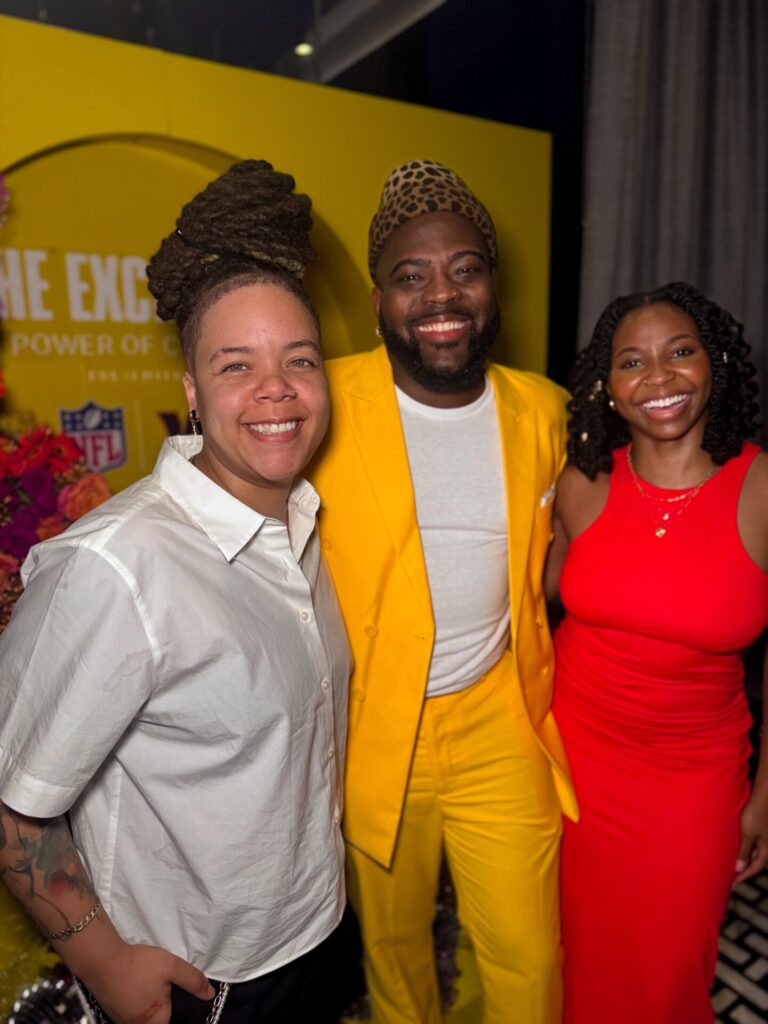
The week opened with Black queer folks arriving from around the globe, some with longtime chosen family, others boldly solo. At welcome mixers and pre-parade socials, you could feel the buzz of connection. No explanations. No shrinking. Just presence. And the gathering of community started up immediately.
That evening, we joined the NFL and Washington Commanders for The Exchange: The Power of Connection, a cultural dinner hosted by Preston Mitchum focused on queer storytelling in sports. The event brought together athletes, executives, and advocates, with Black women at the center of the conversation. In a room full of WNBA reps and sports industry leaders, it was more than a networking dinner—it was a reimagining of what it means to support Black queer women in spaces that have historically overlooked us.
Midweek: Panels & Perspective
Throughout the week, Black queer women didn’t just attend World Pride—we led it. Whether moderating panels on health equity, sharing lived experiences on identity and mental health, or curating joyful spaces built specifically for us, our presence wasn’t symbolic, it was central.
Human Rights Conference at JW Marriott
At the Human Rights Conference, we witnessed global change makers in motion. Expert panels tackled everything from healthcare access to cultural visibility. We had the chance to connect with Dr. Uchenna Lizmay Umeh (Dr. Lulu), a Nigerian-born pediatrician and fierce advocate for LGBTQIA2S+ youth, who led the panel Mental Health: The Journey to Self-Acceptance, Affirmation and Love. Her approach to culturally responsive healing was both personal and radical. She left attendees inspired to not only prioritize mental wellness—but to see it as a revolutionary act of self-love.
Later, we spoke with model and activist Yasmin Benoit after her panel Scandalously Asexual: The Trials, Triumphs, and Lessons of Paving the Way. Yasmin shared her experience as a Black asexual woman navigating invisibility in both queer and mainstream spaces. “I kept scrolling social media waiting to see someone like me,” she said, “until I finally decided, I’ll be that person.” Her unapologetic presence continues to inspire and educate globally.
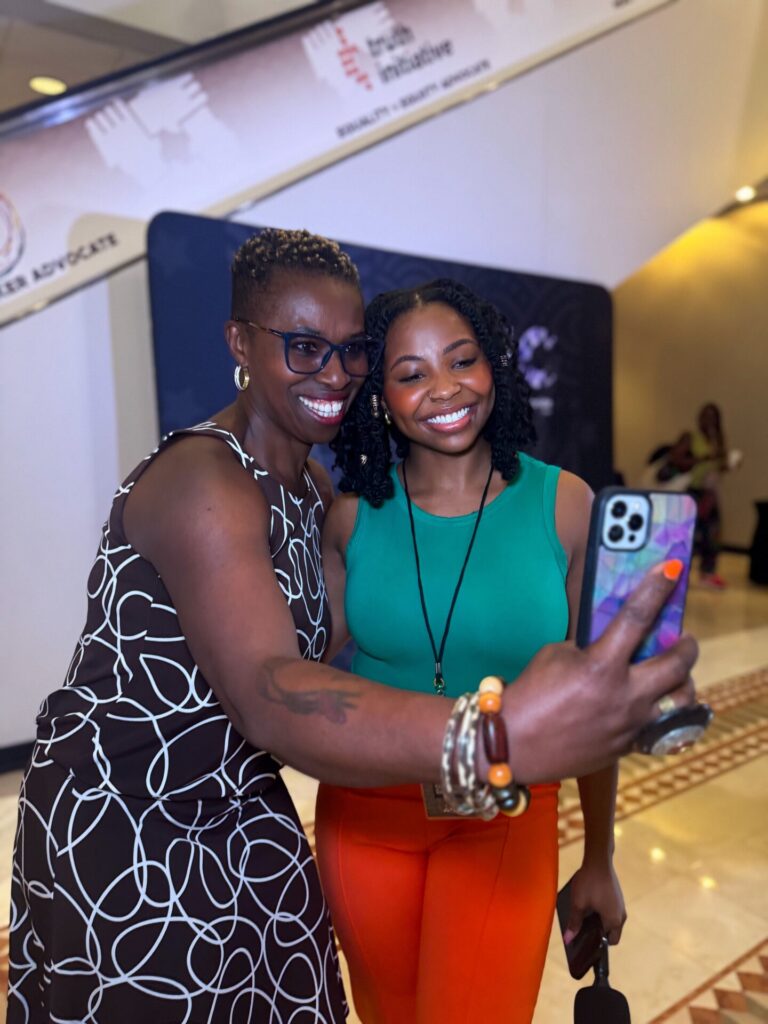
Capital Pride Honors
At the Capital Pride Honors, we had the opportunity to connect with several remarkable local advocates recognized for their impact within the LGBTQ+ community. Among the honorees were Black queer leaders such as Jerry St. Louis, a Clinical Social Worker and Certified Sex Therapist dedicated to community healing; Ernest Hopkins, a trailblazing HIV/AIDS activist and co-founder of Black Gay Pride; Lamar Braithwaite, Board Chair of SMYAL, championing youth housing and empowerment; and Kraig Ronald Williams, a committed community organizer and volunteer leader.
We also caught up with special guests including actress Raven-Symoné, podcast host and media visionary Anna DeShawn, and Cathy Renna, Director of Communications for the National LGBTQ Task Force and former GLAAD National News Media Director. Each of them reflected on the significance of being in a space where their work is not only recognized but deeply affirmed—surrounded by others who share a common vision for equity, joy, and justice within the LGBTQ+ community.
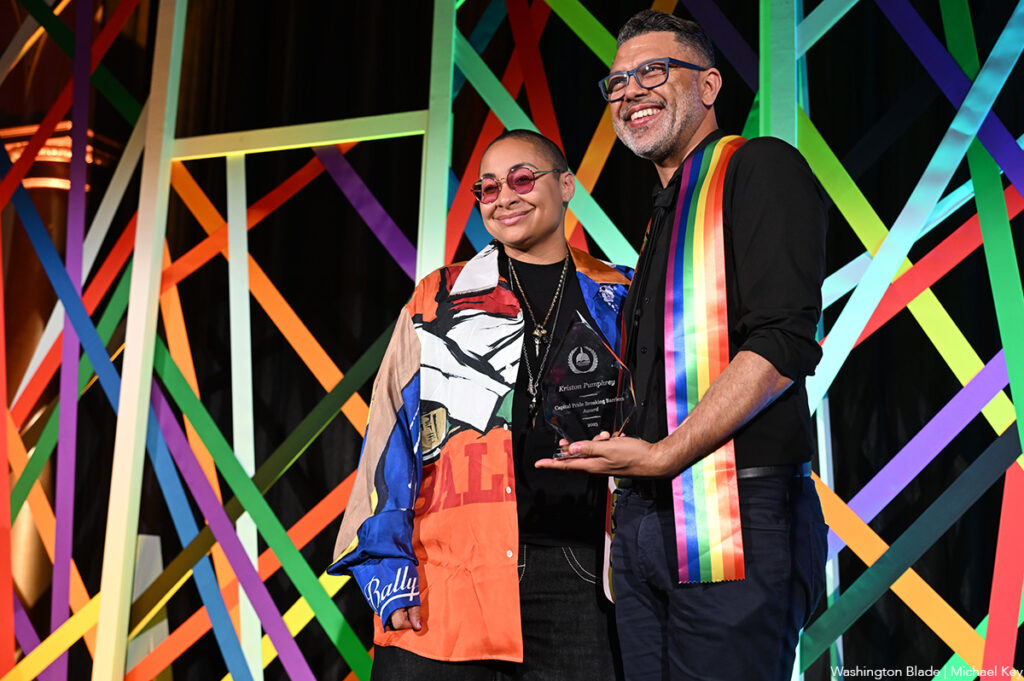
Joy As Protest: House of Aunties, The Parade, and The March
Friday: House of Aunties
On Friday, Queerious and Queer Aunties hosted a rooftop social at City Market at O sponsored by Vascano Tequila a Black, LGBTQ, women owned brand and highlighted several Black, queer women owned vendors. It was an entire night dedicated to Black queer women. Featuring sounds by DJs Whitney Abstrakt, Geena Marie, and Zemi, and a special appearance from actress Jerrie Johnson, the event was more than a party. It was affirmation. In a city where spaces for queer women—let alone Black queer women—are few and far between, this night felt like oxygen.
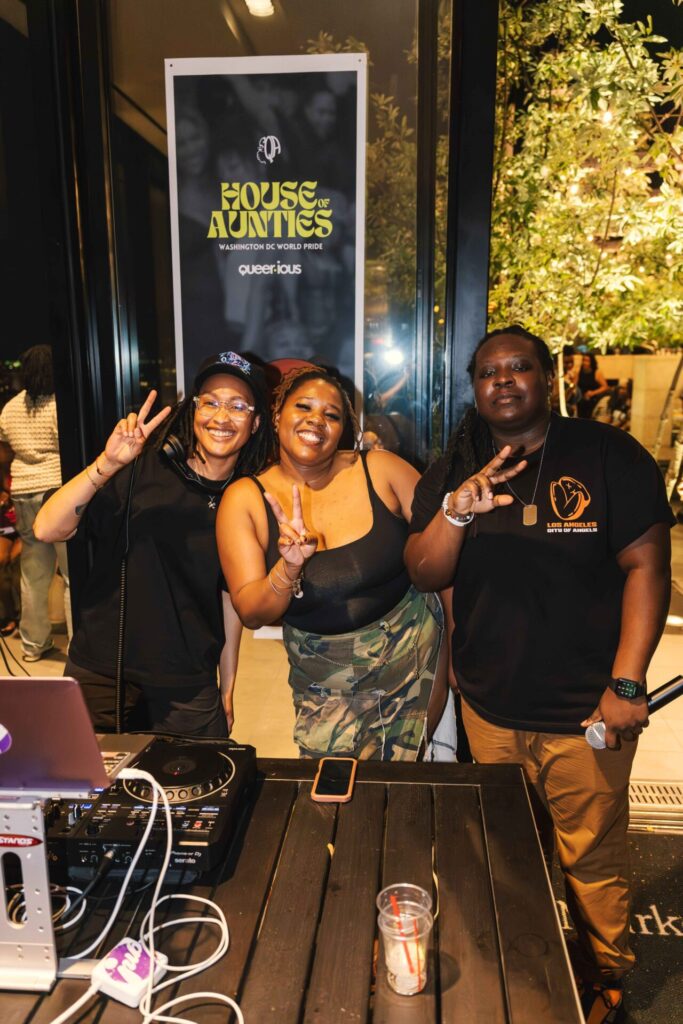
Saturday: The Parade
The streets of D.C. were alive. Flags waved, music thumped, and joy radiated block to block. But the soul? The rhythm? That was us. Black queer and trans women led the way—marching, dancing, holding signs that read “Black, Queer & Unbothered”, “Our Pride is Political,” and “Black Pride.” Actress Laverne Cox, smiling and waving from a convertible, and shouted to remind the crowd that, “Pride means showing up for each other, no matter what.”

Sunday: The March on Washington
We closed the week by marching—not for scraps of representation, but in honor of what we’ve already built. This wasn’t a photo op. It was a declaration. The World Pride March on Washington reminded us that the LGBTQ+ movement has always been rooted in protest, in organizing, in us. We walked in the footsteps of those who resisted before us—and in step with those who will lead after us.

Main Stage Magic: Black Talent on Full Display
On Saturday, Cynthia Erivo brought the house down, blending vocal brilliance with spiritual presence. Her final note—pulled straight from her role as Elphaba in Wicked—left the crowd absolutely breathless.
Sunday’s lineup brought a different kind of energy. CeCe Peniston and 2AM Ricky had the crowd dancing in daylight, while headliners Khalid and Doechii brought vulnerability and fire to the stage. Khalid spoke candidly about performing at his first-ever Pride, offering love to fans who’ve held him up along the way. Doechii, bold as ever, led the crowd in affirmations—reminding us to protect our joy, honor our needs, and never dim our brilliance.
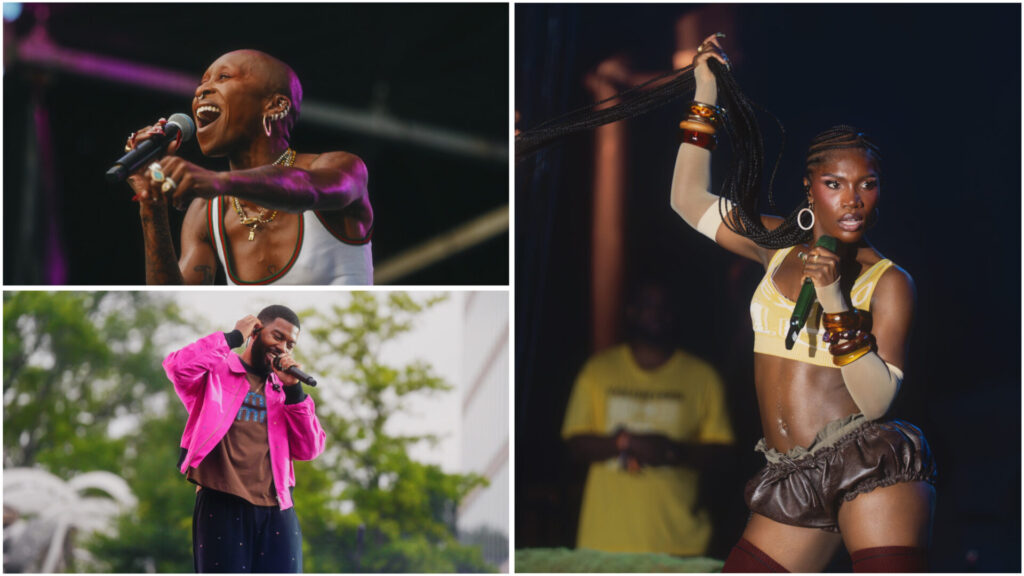
As World Pride came to a close, one thing was undeniable: Black queer women are not the backdrop. We are the culture. The caretakers. The architects of joy. To be Black, queer, and woman at World Pride was to carry both the history and the future in our hands. We weren’t just present, we were central. We didn’t just celebrate, we strategized, organized, danced, healed, and built.
And we’ll be back.
Because we are not just part of the story.
We are the foundation.












